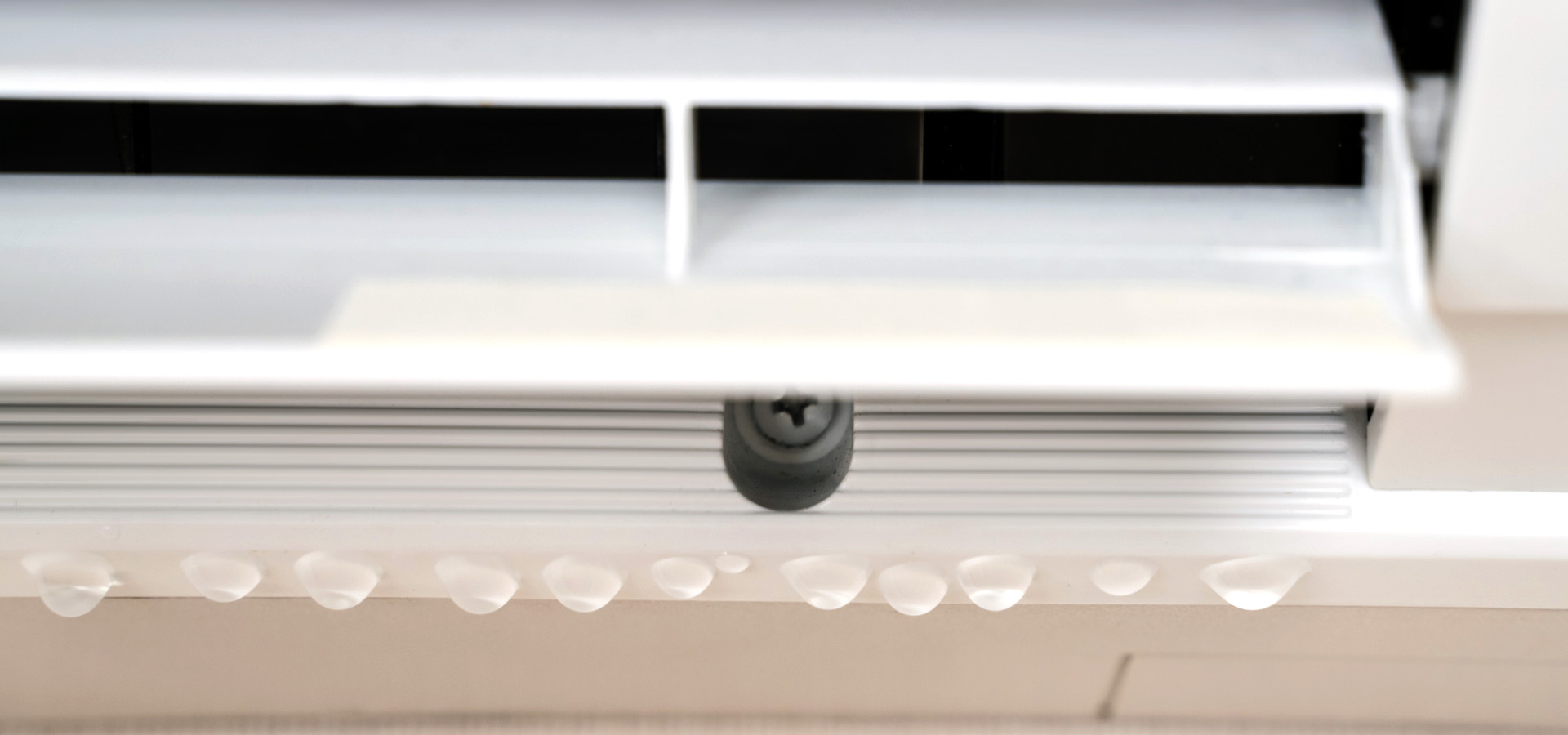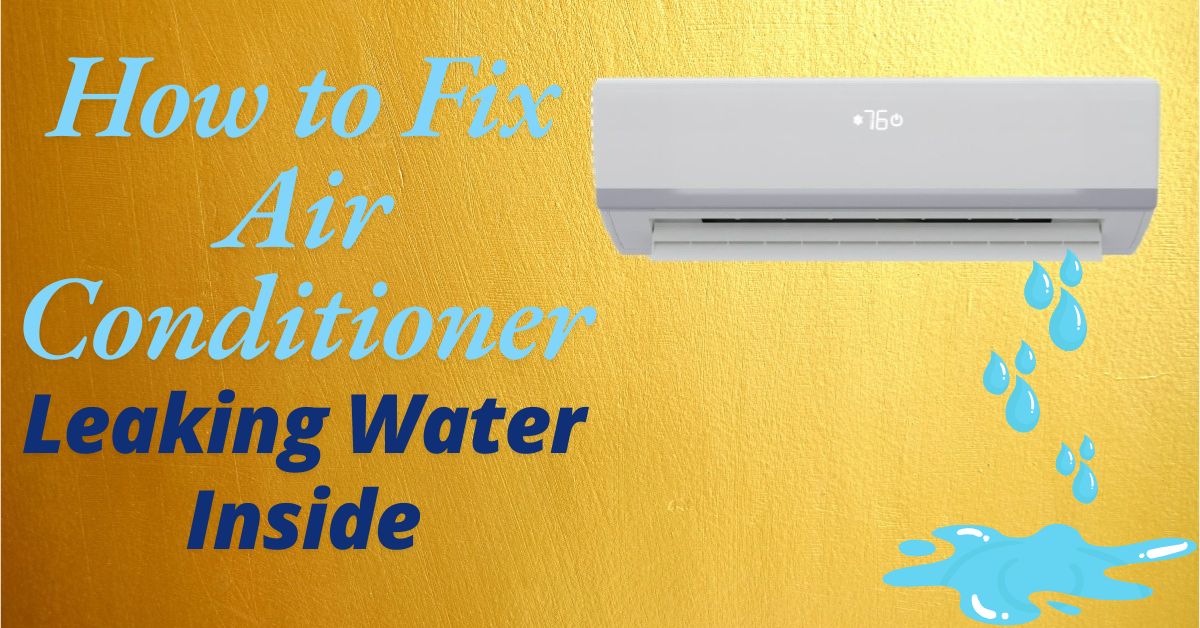How To Stop Air Conditioner From Leaking

A leaking air conditioner isn't just a nuisance; it's a red flag signaling potential energy waste and costly repairs. Whether you're a homeowner aiming for lower utility bills, a business looking to upgrade to more sustainable HVAC systems, or an HVAC contractor focused on selling energy-efficient solutions, understanding how to identify and address AC leaks is crucial. This guide provides practical steps to diagnose and fix common causes, helping you save money, improve energy efficiency, and potentially qualify for rebates. We’ll cover everything from simple DIY fixes to when it’s time to call in a professional, ensuring your cooling system operates at peak performance.
Understanding Air Conditioner Leaks: Types and Causes
Before diving into fixes, let's clarify the types of leaks you might encounter and their common causes. Misidentification can lead to unnecessary expenses, so accurate diagnosis is key.
Condensation Leaks
The most common type of AC leak is a condensation leak. As your AC cools air, it also dehumidifies it. The resulting water vapor condenses on the evaporator coils and drips into a drain pan, eventually exiting through a drain line. Problems arise when this process is disrupted.
- Clogged Drain Line: This is the most frequent culprit. Algae, mold, dust, and debris can accumulate, blocking the drain line and causing the water to back up, overflow the drain pan, and leak. Think of it like a clogged sink drain.
- Damaged Drain Pan: The drain pan itself can corrode, crack, or become dislodged, leading to leaks. Plastic pans are particularly susceptible to cracking over time, especially in hot attics.
- Frozen Evaporator Coils: When airflow is restricted (due to a dirty air filter, for example), the evaporator coils can freeze over. As the ice melts, the excess water overwhelms the drain pan's capacity, causing a leak.
Refrigerant Leaks
Refrigerant leaks are far more serious than condensation leaks. Refrigerant is the chemical compound that absorbs heat from your home. A leak means your AC is working harder to cool your space, consuming more energy and increasing your energy bill. Refrigerant leaks require professional attention.
- Corrosion: Over time, components within the AC unit, especially copper tubing, can corrode due to exposure to moisture and chemicals.
- Vibrations: The constant vibrations of the compressor and other moving parts can weaken joints and connections, leading to leaks.
- Poor Installation: Improperly installed refrigerant lines are more prone to leaks, especially at joints and connections.
DIY Solutions for Condensation Leaks
Many condensation leaks can be addressed with simple DIY solutions. Here's a step-by-step guide:
Clearing a Clogged Drain Line
- Locate the Drain Line: The drain line is usually a PVC pipe located near the indoor AC unit (furnace or air handler). It typically exits the house near the foundation.
- Disconnect the Drain Line: Carefully disconnect the drain line from the AC unit. Have a bucket ready to catch any water.
- Flush the Drain Line: Use a wet/dry vacuum to suck out any clogs. Place the vacuum hose over the open end of the drain line and create a tight seal. Turn on the vacuum for several minutes. Alternatively, you can use a garden hose to flush the line with water.
- Pour in Vinegar: After clearing the clog, pour a cup of distilled white vinegar down the drain line. Vinegar helps prevent future build-up of algae and mold. Repeat this monthly as a preventative measure.
- Reconnect the Drain Line: Reconnect the drain line to the AC unit.
- Test: Run the AC and monitor for leaks.
Repairing a Damaged Drain Pan
A severely damaged drain pan may need to be replaced. However, small cracks can often be temporarily repaired with epoxy or waterproof sealant. Consider this a short-term fix as replacement is usually required.
- Clean the Drain Pan: Thoroughly clean and dry the area around the crack.
- Apply Epoxy or Sealant: Apply a generous amount of epoxy or waterproof sealant to the crack, following the manufacturer's instructions.
- Allow to Cure: Allow the epoxy or sealant to fully cure before using the AC.
Thawing Frozen Evaporator Coils
If you suspect frozen evaporator coils, the first step is to turn off the AC and allow the ice to thaw. This can take several hours.
- Turn off the AC: Switch off the AC unit at the thermostat and breaker. Set the fan to "on" to circulate air and speed up the thawing process.
- Check the Air Filter: Replace a dirty air filter. This is the most common cause of frozen coils. According to the U.S. Department of Energy, replacing a dirty air filter can lower your AC's energy consumption by 5-15%.
- Inspect the Blower Motor: Ensure the blower motor is working properly. A malfunctioning blower motor can restrict airflow.
- Monitor for Leaks: Once the coils have thawed, turn the AC back on and monitor for leaks.
When to Call a Professional HVAC Technician
While many condensation leaks can be addressed with DIY solutions, certain situations require professional attention. Ignoring these can lead to more significant damage and higher repair costs.
- Refrigerant Leaks: As mentioned earlier, refrigerant leaks require professional repair. Refrigerant is a regulated substance, and only certified technicians can handle it legally and safely. Plus, refrigerant leaks indicate a more serious system problem that needs expert diagnosis.
- Persistent Condensation Leaks: If you've tried the DIY solutions above and the condensation leak persists, there may be a more complex issue, such as a problem with the evaporator coils or a malfunctioning condensate pump.
- Unusual Noises: If you hear hissing or bubbling noises coming from your AC unit, it could indicate a refrigerant leak or other serious problem.
- Reduced Cooling Performance: If your AC isn't cooling as effectively as it used to, it could be a sign of a refrigerant leak or other system malfunction.
- Electrical Problems: If you suspect any electrical issues with your AC unit, such as a burning smell or sparking, turn off the power to the unit and call a qualified electrician or HVAC technician immediately.
Energy Efficiency and Smart HVAC Integration
Addressing AC leaks not only prevents water damage but also improves energy efficiency. A well-maintained and leak-free AC system operates more efficiently, consuming less energy and lowering your utility bills. Consider the following:
- Energy Star Certification: When upgrading your AC system, look for models that are Energy Star certified. These models meet strict energy efficiency guidelines set by the U.S. Environmental Protection Agency (EPA) and can save you significant money on your energy bills over the long term.
- Smart Thermostats: Integrating your AC system with a smart thermostat can further enhance energy efficiency. Smart thermostats learn your cooling preferences and automatically adjust the temperature to optimize energy consumption. They can also be controlled remotely via a smartphone app, allowing you to adjust the temperature even when you're not home. Some smart thermostats even offer features like geofencing, which automatically adjusts the temperature based on your location.
- Smart Sensors: Smart sensors can be used to monitor the temperature and humidity in different rooms of your home. This data can be used to optimize the performance of your AC system and identify areas where energy is being wasted. For example, if a particular room is consistently warmer than others, it could indicate a problem with the insulation or ductwork.
- Regular Maintenance: Schedule regular maintenance with a qualified HVAC technician. A technician can identify and address potential problems before they become serious, ensuring that your AC system operates at peak efficiency. Regular maintenance also includes cleaning the coils, checking refrigerant levels, and inspecting the ductwork.
Rebates and Incentives
Many utility companies and government agencies offer rebates and incentives for upgrading to energy-efficient HVAC systems. These rebates can help offset the cost of new equipment and make energy-efficient upgrades more affordable. Check with your local utility company and state energy office for information on available rebates and incentives. Energy Star's website is also a good resource for finding rebates.
For businesses, upgrading to energy-efficient HVAC systems can also qualify for tax deductions and other financial incentives. The Database of State Incentives for Renewables & Efficiency (DSIRE) is a comprehensive resource for finding information on state and federal incentives for energy efficiency and renewable energy.
Conclusion
Addressing air conditioner leaks is a crucial step toward saving energy, reducing utility bills, and ensuring the longevity of your HVAC system. By understanding the different types of leaks, following DIY solutions for condensation leaks, and knowing when to call a professional, you can keep your AC system running efficiently and effectively. Embrace energy-efficient technologies like Energy Star certified equipment, smart thermostats, and smart sensors to further optimize your energy consumption and take advantage of available rebates and incentives. Proactive maintenance and a focus on efficiency not only benefit your wallet but also contribute to a more sustainable future.










